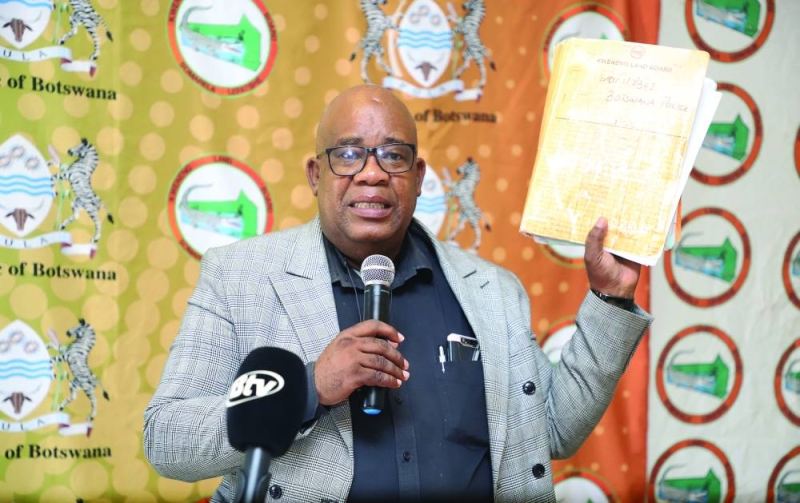Fake land certificates prevalent in Greater Gaborone
Mompati Tlhankane | Monday April 24, 2023 06:00


Kweneng Land Board has revealed that cases of fake land certificates are prevalent in Land Boards which are nearer to the capital city, Gaborone.
The cases involve the old Customary Land Grant certificate.
Kweneng Land Board chairperson Kgang Kgang disclosed that Mogoditshane village is one of the most lucrative areas because it is just a few minutes away from the city. “In Kweneng, besides Mogoditshane, we have cases in Lentsweletau, Kopong, Gabane, Kumakwane and Thamaga. We also have a problem of fake certificates in Kgatleng more especially in Oodi,” he said.
He revealed that there is a case in which someone who is currently deceased managed to sell fake plots to seven people. He said there is also a case of false certificates involving a Mmopane Block 1 councillor who ended up in prison. “We have an escalating issue of fake certificates. People are continuing to scam people with fake certificates. Some of these cases have already been reported to the police.
They self-allocate plots and they rip off people promising to sell land they don’t own. People have been cheated and some have lost money as much as P270,000.
Foreigners have fallen victim to these scammers,” he further revealed. Moreover, Kgang said the cases are being litigated and there are many of them. He said it is alleged that the certificates are produced at Internet Cafés. “We easily detect them because they don’t pass the security features. With the cases of fake certificates, the Land Board repossess the plot as it is, if it disturbs the layout that is when we destroy it,” he highlighted. Kgang said going forward they feel that the solution to the fake certificate scam is to allocate more plots to Batswana to timely exhaust the land waiting list and develop idle land prone to corruption and fraud schemes. For his part, the Ministry of Land and Water Affairs' Chief Public Relations officer, Kaelo Kaelo indicated that the current arrangement does not allow Land Boards to issue certificates.
“With these new allocations, they are given resolutions by the Board. The new Tribal Land Act explains that all pieces of land rights should have Secure Land Titles (SLTs). These new certificates or title solves all the problems we have been facing with the old certificates. Security features of the SLT cannot be photocopied and are more secure as the name suggests,” he said.
Kaelo pointed out that owners get their copies at the Deeds Registry. He said the new certificates are produced almost in the same manner as bank notes in terms of security.
When it was launched last year, the new certificate replaced the old Customary Land Grant certificate which has been issued by Land Boards since 1970 following their establishment. Land Boards are now obliged to register grants at the Deeds Registry when they allocate land for both residential and business use. This means that Land Boards will bear the cost of surveying and submitting to the Deeds Registry, drastically reducing costs incurred by the citizen.
